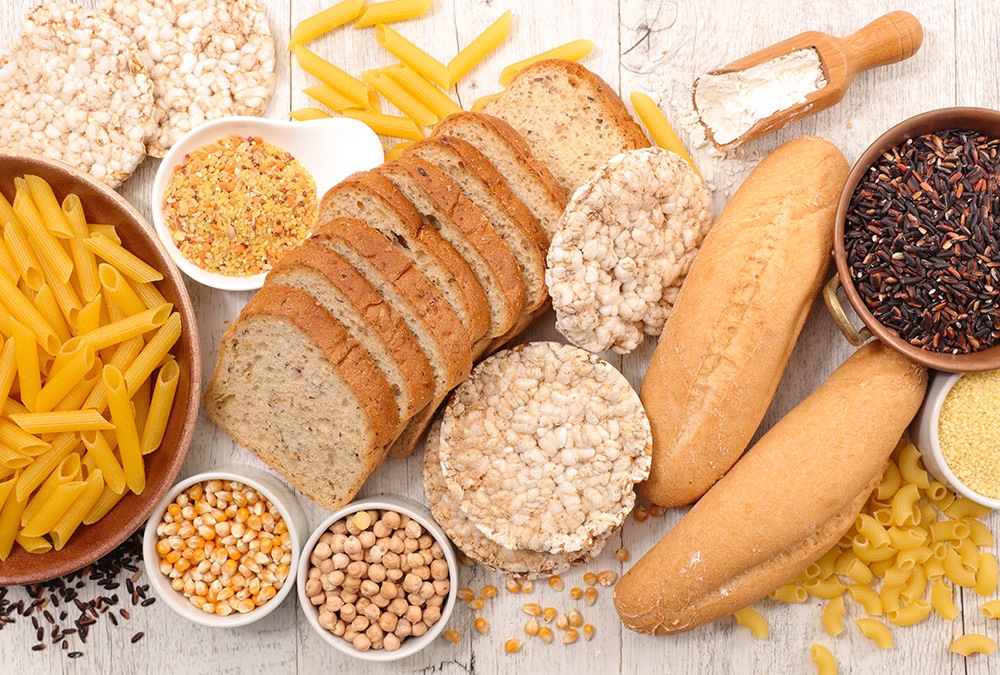Mon - Fri 9.00 - 17.00
Call us +1 (888) 825-9321

Lately it seems like just about everyone is cutting gluten out of their diets. Data from a recent Gallup poll shows that 21% of adults living in the United States are now actively avoiding gluten. Unsurprisingly, this is driving up the demand for gluten-free restaurants, which is expected to double by 2020.
The Internet is flooded with testimonials about the health benefits of going gluten free, which include claims of increased energy, natural weight loss, better digestive health, lower cholesterol levels, and reduced risks of heart disease, diabetes, and cancer. Sounds great, right? But medical professionals don’t believe there’s evidence to support the gluten-free hype.
“People who are sensitive to gluten may feel better, but a larger portion will derive no significant benefit from the practice,” said Dr. Daniel A. Leffler, director of clinical research at the Celiac Center at Beth Israel Deaconess Medical Center in Boston and assistant professor of medicine at Harvard Medical School, in an interview with Harvard Health.
As Leffler’s quote acknowledges, there are some people who genuinely should avoid gluten. For people with celiac disease, an incurable autoimmune disorder, even microscopic amounts of gluten can cause serious trouble. If you have celiac disease, eating gluten triggers a damaging immune response in the small intestine that leads to malabsorption of nutrients and can cause symptoms like bloating, diarrhea, fatigue, weight loss, and anemia. Over time, if the underlying cause is not identified and treated by adhering to a strict gluten-free diet, serious health complications can arise, like osteoporosis, infertility, nerve damage, and seizures. Celiac disease affects about 1% of the population.
Some individuals may also have what’s called gluten sensitivity, or non-celiac gluten sensitivity. This can produce symptoms that overlap with the early ones of celiac disease, but there’s no intestinal damage, so no risk of the more detrimental outcomes. This milder form of gluten intolerance impacts between 0.5% and 13% of the population.
If you think you may have celiac disease or gluten sensitivity, it’s best to consult with a doctor before cutting gluten out of your diet, as the blood tests used to diagnose these conditions become less reliable if you’ve been avoiding foods that contain gluten.
Eliminating gluten can also bring relief for individuals dealing with irritable bowel syndrome (IBS), which affects 7 to 20% of the population. According to registered dietician Lori Chong, people with IBS can benefit from adopting a FODMAP diet—FODMAP stands for Fermentable Oligosaccharides, Disaccharides, Monosaccharides and Polyols—which involves going gluten-free.
“The gluten grains are high FODMAP foods,” Chong said in an interview with LiveScience. “They contain oligosaccharides that can be easily fermented by intestinal bacteria. This can cause bloating, cramping and/or diarrhea.”

Many people, even those who have come to believe gluten is bad for you, can’t define exactly what gluten is. Gluten, in the simplest terms, is a protein found in certain grains—wheat, barley, rye, and a new variety called triticale.
Gluten plays an important role in the baking process. It makes dough elastic and helps it to rise. It also helps the finished product keep its shape and creates a satisfying, chewy texture. Gluten can be found in a wide variety of foods, some of which you’d expect and some of which might surprise you

If you are cutting out gluten due to celiac disease or gluten sensitivity, you should also exercise caution when it comes to oats. While oats can be a wonderful addition to a gluten-free diet, especially because of their high-fiber content, cross-contact can occur when oats are grown next to wheat, barley, or rye. The oats themselves don’t contain gluten, but they may have gluten-containing grains mixed into them. This issue can be avoided by only purchasing certified gluten-free oats.
Gluten can also be found in some vitamin and mineral supplements, prescription medications, toothpastes, and lipsticks, lip glosses, and lip balms, which you might unintentionally swallow some quantity of.
Following a strict gluten-free diet can be quite challenging and quite expensive, especially if you seek out gluten-free versions of products typically made with gluten-containing grains. And avoiding gluten can also cause health problems.
Alongside the idea that gluten is unhealthy, an unfortunate assumption has risen that anything gluten free is healthy. Far from being healthier than gluten-filled counterparts, many gluten-free foods can actually be substantially less nutritious.
Gluten-free bread, baked goods, crackers, and snacks tend to be made from potato starch or rice starch, which have none of the health benefits associated with whole grains. In an Expert Voices column, registered dietician Katherine Tallmadge wrote that gluten-free goods “can be seriously lacking in critical nutrients such as fiber, iron, zinc, folate, niacin, thiamine, riboflavin, calcium, vitamin B12, and phosphorous.”
Gluten-free goods also tend to be more highly processed, to contain more sugar, and to contain more calories than their gluten-containing equivalents.
Any health benefits associated with eliminating gluten, for those who don’t have celiac disease or another condition that necessitates it, likely have to do with removing foods high in refined carbohydrates and sugar, not with gluten itself. By adding back in gluten-free versions of those products, you’d be undoing that.
If you do choose to avoid gluten, be sure to prioritize naturally gluten-free foods, such as:
